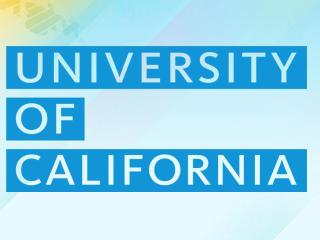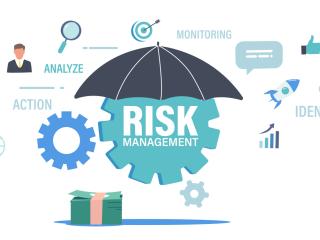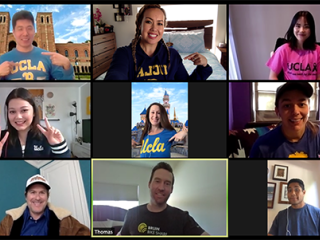Your quiet achievers are the team members who keep your operation running smoothly. Proactively developing their talent can safeguard team performance today while building leadership strengths for tomorrow.
Monthly Management Tips
Monthly Management Tips (MMT) are brought to you by Administration Leadership 2029’s “Work from Home Management Solutions” team. Each month, the team, in conjunction with Campus Human Resources, will distribute a brief article discussing a different topic important to management’s success. Each article is designed with busy managers in mind, taking only a few minutes to read, with various resources and a scenario to help you gain a better understanding of the topic. Solutions to the scenario can be found in the next month’s email. Active discussion of these scenarios during management meetings is highly encouraged and we hope these discussions will encourage dialogue across management levels where success stories are shared.
Subscribe to our newsletter and email us at managementtips@ucla.edu if you have feedback, questions or a suggested topic you would like to learn more about.
How we engage with colleagues during periods of change directly influences productivity, trust, and campus cohesion. All employees can contribute to a stable and supportive work environment when circumstances are uncertain.
As UCLA navigates budget reductions and operational change, managers are essential to sustaining excellence by prioritizing what matters most, stewarding resources responsibly, and leading with empathy and focus.
Effective leadership extends beyond managing direct reports; it also encompasses the ability to cultivate strong relationships with senior leaders. "Managing up" can significantly contribute to a more collaborative and successful workplace.
When faced with dynamic and ongoing challenges, leaders must effectively navigate and guide during these complex situations. This includes managing change and building resistance.
Developing skills and fostering growth are essential to maintaining productivity and high engagement. Various certificates and professional development opportunities are available through Campus Human Resources.
As a manager, your role in supporting new supervisors is not just helpful—it’s essential. Here's how you can create a powerful foundation for leadership growth.
When employees retire, organizational leaders face a critical challenge. Proactive planning and strategic execution are essential to successfully navigating this transition.
Here are key strategies and resources to help you prepare your staff for future opportunities, ensuring they are ready to contribute meaningfully to both their career advancement and the organization's goals.
One of the key responsibilities of any leader is to identify and develop the next generation of supervisors. Here's how to determine who has the potential to be an effective leader and best prepare them for success.
This month's Management Tips provides guidance on completing a Transitional Return-to-Work (TRTW) Agreement to help UCLA staff and faculty with injuries or illnesses stay at or return to work.
Most managers have had to navigate tough conversations in their leadership journey. Radical candor empowers leaders to provide constructive feedback while building trust and fostering professional relationships.
In today’s diverse and dynamic work environment, maintaining respect and civility is crucial, especially when discussing sensitive topics. Here are some key points and best practices to ensure a respectful and civil workplace.
We answer some of the most common questions about AI, a rapidly evolving field that is transforming the way we do business here at UCLA and in our personal lives.
As email remains the cornerstone of workplace communication, we explore the dos and don’ts of email in the workplace.
The resources available on UCLA’s Generative AI site will help our community explore and leverage the capabilities of AI in alignment with our institutional principles of integrity and scholarly excellence.
The HR IT Systems Optimization Program is a campus initiative that aims to modernize vital HR systems, streamline processes, and improve the overall experiences of HR clients, employees, and the campus community.
More than 1 in 5 U.S. adults live with a mental illness which can significantly impact their job performance. Here is how you can support an employee with mental health conditions.
Help change the trajectory of climate change with these low-carbon holiday alternatives to make new sustainable traditions.
The holidays can bring extra stress for managers and employees alike. Holiday CPR focuses on three health and wellness tips to navigate the end of the year with more grace and ease.
The UCLA Office of Emergency Management (OEM) helps prepare the campus for emergencies by providing communication tools and resources to keep the UCLA community informed.
We have outlined the reporting procedures in the event of a work-related injury/illness, which applies to those who are injured at work or who develop a job-related illness as a result of their employment.
The UCLA Insurance & Risk Management - Ergonomics Program provides a variety of services to the campus as part of their mission to mitigate and prevent incidences of musculoskeletal disorders like tendonitis or carpal tunnel syndrome.
Helping new employees understand the organizational culture and figure out “how things are done” goes a long way toward successful integration into the organization.
As management, it is crucial to recognize and uplift the potential of each generation, including the youngest cohort, Generation Z. Here are insights into understanding Gen Z and practical strategies for fostering collaboration and synergy across generational differences.
For those choosing to close one chapter of life and begin the next, knowing where to begin the retirement process can be daunting. Here's helpful information about UC Retirement programs and benefits.
As a leader, lessons should be abundant and learning should be a never-ending process. To become a high-value leader, continuous growth is key to success for both the leader and their staff.
These tips for addressing implicit bias in the workplace can help create a more inclusive and equitable workplace for everyone.
Managers and supervisors have an obligation to address and report abusive conduct and know what resources are available to staff members.
We will explore ways to identify future leaders, ways to think a little outside the box, and offer resources for helping your employees develop leadership skills.
UC Experience Conversations are one-on-one, broad-ranging conversations between managers and staff that help build constructive relationships with your employees.
In order for an organization to continue moving forward, management must have development and feedback discussions with individual employees regarding their interest in upward or lateral movement in their careers.
An important part of developing a strategic talent planning process is to assess the needs of the workforce as well as the department.
Here at UCLA, there are many different opportunities available to help yourself or a member of your staff develop professionally.
Here are ways to support your staff’s well-being and encourage a healthy work-life balance.
The idea of Emotional Intelligence has come forward as an essential tool for leaders in recent years. These five essential skills will help you develop your emotional intelligence.
With the increase in meetings from fully remote or hybrid work arrangements, here are best practices on how to make them effective and efficient.
All organizations risk experiencing losses at the hands of those with ill-intent or personal gain in mind. Here are best practices for ensuring that UCLA’s community members are responsible stewards to the public we serve.
Succession planning is critically important to your organization's future, but is often left on the backburner. Here's how to make sure you're prepared when the unexpected happens.
Have challenges from the pandemic affected employee morale? Here's how to establish a culture of belonging and appreciation within your organization.
Campus Human Resources recently sent a campus reminder that 2021’s performance evaluation season has begun and it is time to put in writing what you have been communicating to your team members this past year. We hope the following tips and recommendations will help you through this process.
A key component of employee engagement includes professional growth. If you have represented staff, here's how to develop them while still complying with the CBA.
UCLA is committed to Equity, Diversity & Inclusion (EDI), but how can we as leaders exemplify this commitment on campus? Here are a few tips and tricks to take that step forward.
As managers, our most important responsibility is guiding the performance and professional growth of our direct reports and team members. Here's how to set performance goals with your staff and provide meaningful professional development opportunities for your direct reports.
Generally, what employees need to achieve their best and feel appreciated is to be recognized for their hard work. Here is a list of creative and effective recognition programs.
Here are tools, tips and resources to ensure an efficient and positive onboarding experience for both you and your new hire, and truly set them up for success at UCLA.
As hiring managers and interviewers remain remote or in hybrid workplace arrangements, here are tools, resources, and best practices to ensure an efficient, positive and equitable recruitment process.
We have scoured the UC webiverse and found some great, free resources available to all UCLA employees you may not know about.
This month we will focus on identifying team behaviors of concern, managing feelings, building trust amongst teams, and the role emotional intelligence plays in this area.
One of the most challenging tasks for people is having difficult conversations. Here is how to prepare for these conversations, what to do during these conversations and best practices for following up.
We would like to introduce you to a simple communication and collaboration tool that the campus has recently introduced: Slack.
COVID-19 has caused many changes to the way our teams communicate and operate. Here's how to build strong, open lines of communication with a remote or hybrid team.
Here are tips and recommendations that will help you through performance evaluation season.
Setting expectations is key to the success of any manager, but is particularly important when managing a remote workforce. Here's what that looks like.
Remote work has many benefits but has also exacerbated existing issues for underperforming employees. Here's what it looks like to create a culture of support and accountability.

















































